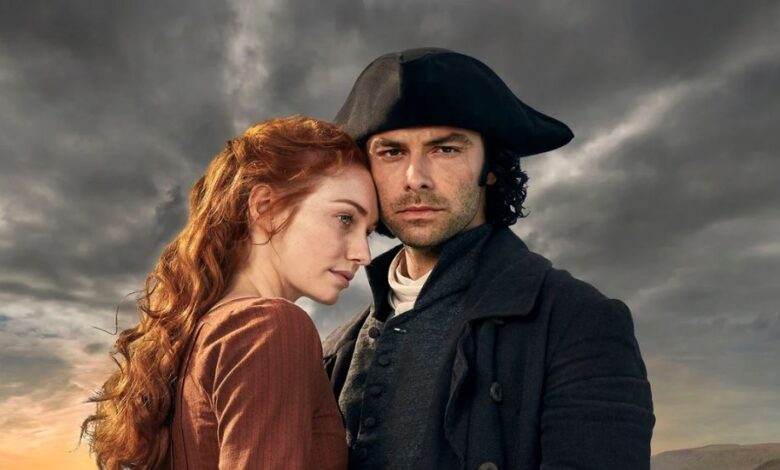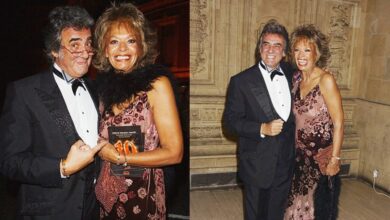Ross Poldark – The Legendary Cornish Hero Who Captivated Generations

Ross Poldark is the fictional hero of the celebrated Poldark saga, written by British author Winston Graham. First appearing in the 1945 novel Ross Poldark: A Novel of Cornwall, 1783-1787, he embodies courage, rebellion, and compassion in late-18th-century Britain.
When Ross returns home to Cornwall after serving as a British Army officer in the American War of Independence, he finds his world shattered. His father is dead, his estate (Nampara) lies in ruin, and his beloved Elizabeth Chynoweth is engaged to his cousin Francis Poldark. From those ashes begins his struggle to rebuild life, love, and livelihood.
The Poldark series spans twelve novels (1945–2002) and portrays more than two generations of the Poldark family—offering romance, politics, and vivid portraits of Cornish mining life.
The Historical and Social Backdrop
The world Ross inhabits is not mere scenery—it’s the beating heart of the story. The Cornwall of the 1780s and 1790s was a landscape of harsh beauty and harsher economics: copper and tin mines, windswept moors, and small fishing villages bound by custom and class.
Ross stands at the crossroads of this changing society. Though born to privilege, he identifies with the working poor and risks his standing to support them. His compassion for miners and farmers sets him apart from the complacent gentry. In this way, he becomes both rebel and reformer—a man caught between classes and centuries.
Ross Poldark’s Age and Era
Canonically, Ross Poldark was born in 1760, making him about 23 years old in 1783 when he returns from America. The early novels and the first TV season cover the years 1783-1787, but later volumes carry him well into the 1800s as he ages into a seasoned father, entrepreneur, and even a Member of Parliament.
This long timeline allows readers to watch him evolve—from impetuous soldier to wise yet weary statesman—mirroring the social and industrial transformation of Britain itself.
The Rise and Fall of His Fortune – Ross Poldark’s Net Worth
Unlike many fictional gentlemen heroes, Ross’s wealth is far from stable. When he comes home, he finds his inheritance mismanaged and his estate impoverished. To restore it, he reopens the derelict Wheal Leisure copper mine, hoping to bring prosperity not just to himself but to his community.
His finances rise and collapse repeatedly. The mines flood, the market shifts, and Ross often stakes his last shilling on new ventures. At times he lives nearly destitute; at others, he becomes one of Cornwall’s more prominent investors.
If one were to summarize his “net worth,” it would not be a figure in pounds sterling but rather his moral capital—his integrity, courage, and devotion to fairness. Ross Poldark is rich in principle even when poor in coin.
The Actors Who Brought Ross Poldark to Life
Robin Ellis (1975 BBC Series)
The first actor to portray Ross on television was Robin Ellis in the original 1975 BBC series. His dignified and restrained performance earned the show a devoted following and defined period drama for the decade.
Aidan Turner (2015 BBC Reboot)
Four decades later, the BBC revived Poldark with Aidan Turner as its brooding hero. Turner’s portrayal brought new vitality, blending raw emotion with rugged charisma. The reboot aired from 2015 to 2019, captivating millions worldwide through PBS Masterpiece and streaming platforms.
Turner’s version cemented Ross Poldark as a modern romantic icon, drawing comparisons to Mr. Darcy or Heathcliff but with distinctly Cornish grit. His chemistry with Demelza (played by Eleanor Tomlinson) became the heartbeat of the series.
Is There a Ross Poldark Movie?
Despite the saga’s popularity, there is no major theatrical film titled Ross Poldark. The story lives primarily through its television incarnations:
- Poldark (1975-1977) – BBC classic starring Robin Ellis.
- Poldark (2015-2019) – BBC One/Masterpiece reboot starring Aidan Turner.
- 1996 TV movie/pilot – an unaired attempt at revival.
Both series were filmed on location across Cornwall’s cliffs and mines, making the setting as vital as the characters themselves. The sweeping cinematography and emotional storytelling give Poldark the scope of cinema—even without a film release.
Ross Poldark’s Family and Lineage
Parents
Ross Poldark is the son of Joshua Poldark and Grace (Vennor) Poldark. When the novels begin, both have died, leaving him to reclaim the decaying Nampara estate alone.
Siblings
He once had a younger brother, Claude Anthony Poldark, who died in childhood. This loss deepens Ross’s attachment to his cousin Francis Poldark, who becomes both friend and rival.
Extended Family
The Poldarks are an old Cornish family. Ross’s Uncle Charles Poldark represents the older generation of landowners; Aunt Agatha Poldark, the acerbic matriarch, provides humor and wisdom. Cousin Francis marries Elizabeth Chynoweth, Ross’s first love, creating an emotional triangle central to the story.
Marriage and Love Life – Ross and Demelza
Perhaps the most beloved aspect of the saga is Ross’s relationship with Demelza Carne. She begins as his kitchen maid, a spirited, impoverished girl he hires after rescuing her from a brawl. Against class expectations, Ross marries her—an act scandalous to polite society but true to his character.
Their marriage is passionate, stormy, and enduring. Demelza evolves from servant to lady of Nampara, winning admiration for her wit, warmth, and loyalty. Their bond withstands jealousy, tragedy, and temptation, becoming the emotional core of the entire series.
Ross’s earlier affection for Elizabeth never fully fades, creating moral conflict and driving some of the saga’s darkest chapters. Yet it is Demelza who ultimately defines his happiness and humanity.
Ross Poldark’s Children
Ross and Demelza have five children in total, though not all survive infancy:
- Julia Poldark – Their firstborn, who dies tragically of diphtheria.
- Jeremy Poldark – Their eldest son, later a romantic and adventurous figure in subsequent novels.
- Clowance Poldark – Independent and strong-willed, reflecting her mother’s spirit.
- Isabella-Rose (“Bella”) Poldark – An artistic dreamer who becomes a singer.
- Henry (“Harry”) Poldark – Born late in the series, symbolizing renewal and hope.
Their children continue the family saga into the 19th century, ensuring the Poldark name endures beyond Ross’s generation.
Ross Poldark and Aidan Turner – A Cultural Phenomenon
The pairing of the character with the actor became iconic. Aidan Turner’s performance brought Ross to a new century of viewers—fierce yet vulnerable, romantic yet pragmatic. His windswept hair, scarred face, and fiery eyes became synonymous with the modern image of British period drama.
Social media buzzed with admiration for his physicality (the “scything scene” became a viral moment), but critics also praised his depth and nuance. Through Turner, Ross Poldark became both a symbol of passion and a voice for justice, appealing to audiences far beyond historical-drama fans.
Themes and Character Analysis
Ross Poldark’s enduring appeal lies in his contradictions:
- Aristocrat vs Common Man: Born privileged, yet fights for miners’ rights.
- Lover vs Rebel: Torn between passion and principle.
- Idealist vs Realist: Dreams of fairness but faces brutal economic truth.
He is far from flawless—impulsive, proud, sometimes reckless—but those imperfections make him human. In his battles against corrupt gentry, unfair laws, and his own heart, Ross represents the timeless struggle for dignity and equality.
Critics often describe him as a proto-modern hero—a man ahead of his time who refuses to conform. His compassion for the poor, opposition to greed, and devotion to Cornwall make him a hero of conscience as much as romance.
The Legacy of Ross Poldark
The Poldark novels and TV series have become cultural touchstones for nearly eighty years. They capture the spirit of an age—romantic, industrial, and revolutionary. Through Ross, Winston Graham explored questions still relevant today: What does honor mean? Can love survive class and pride? How do we balance progress with compassion?
From book pages to television screens, Ross Poldark remains an icon of resilience and justice. His story endures because it reflects something universal—the yearning to rebuild, to love deeply, and to stand up for what is right.
Why Ross Poldark Still Matters Today
Modern audiences continue to connect with Ross because his challenges mirror our own: economic uncertainty, social inequality, political unrest, and the search for personal integrity in a changing world.
He reminds us that heroism is not found in wealth or power but in courage, empathy, and perseverance. His devotion to Demelza, his loyalty to his people, and his stubborn refusal to bow to corruption make him an eternal figure in literature and television alike.
Whether you first met him in Winston Graham’s novels or through Aidan Turner’s performance, Ross Poldark endures as a timeless hero whose story of redemption still resonates.
Final Thoughts – Ross Poldark’s Enduring Heart
In the windswept cliffs of Cornwall, amid the roar of the sea and the echo of mine-shafts, Ross Poldark’s spirit lives on. He is a soldier, lover, father, and visionary—a man who fought to hold his family, his community, and his conscience together in a world stacked against him.
His worth cannot be measured in gold or land, but in his courage to stand alone when justice demanded it. For that reason, Ross Poldark remains one of British fiction’s most beloved heroes—a symbol of hope, rebellion, and humanity.
Written with admiration for Winston Graham’s creation and the performances that brought him to life—shared proudly on digijournal.




